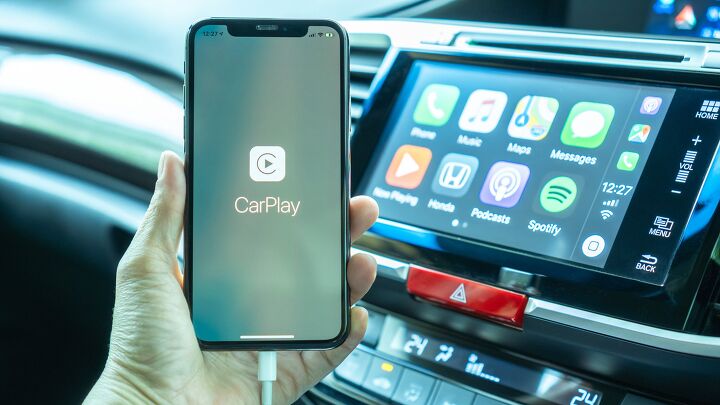
A significant percentage of new car buyers want Apple CarPlay in their next vehicle, but that popularity has the government on high alert. As part of its recent antitrust lawsuit against the tech giant, the U.S. Department of Justice listed CarPlay, saying that it stifled the development of technologies that could work with a phone while residing in the vehicle’s interface.
The lawsuit reads, “By applying the same playbook of restrictions to CarPlay, Apple further locks-in the power of the iPhone by preventing the development of other disintermediating technologies that interoperate with the phone but reside off device.” All of this comes as Apple looks to expand CarPlay’s influence over in-vehicle infotainment to include climate controls and other functions, which is part of the DOJ’s issue.
Automakers have a choice about how immersive they let Apple make the experience, so it’s not like the company is holding OEMs hostage to cover every screen inside a vehicle. Also, while many people have smartphones, car companies can’t assume that everyone does, so new vehicles still have to create usable, intuitive software to control vehicle functions.
The DOJ also took issue with Apple’s control over the Wallet app, saying that “The default status of Apple Wallet steers users to the Apple Wallet rather than allowing third parties to present digital car keys only in their own cross-platform app, increasing dependence on Apple and the iPhone whenever they use their car.” Companies like Rivian and Tesla don’t offer Apple tech, but General Motors recently stopped including smartphone mirroring in its new electric vehicles. The automaker’s tech almost immediately started having problems, leading to a stop-sale for the Chevy Blazer EV and financial compensation for some buyers.
[Image: Chinnapong via Shutterstock]
Become a TTAC insider. Get the latest news, features, TTAC takes, and everything else that gets to the truth about cars first by subscribing to our newsletter.

